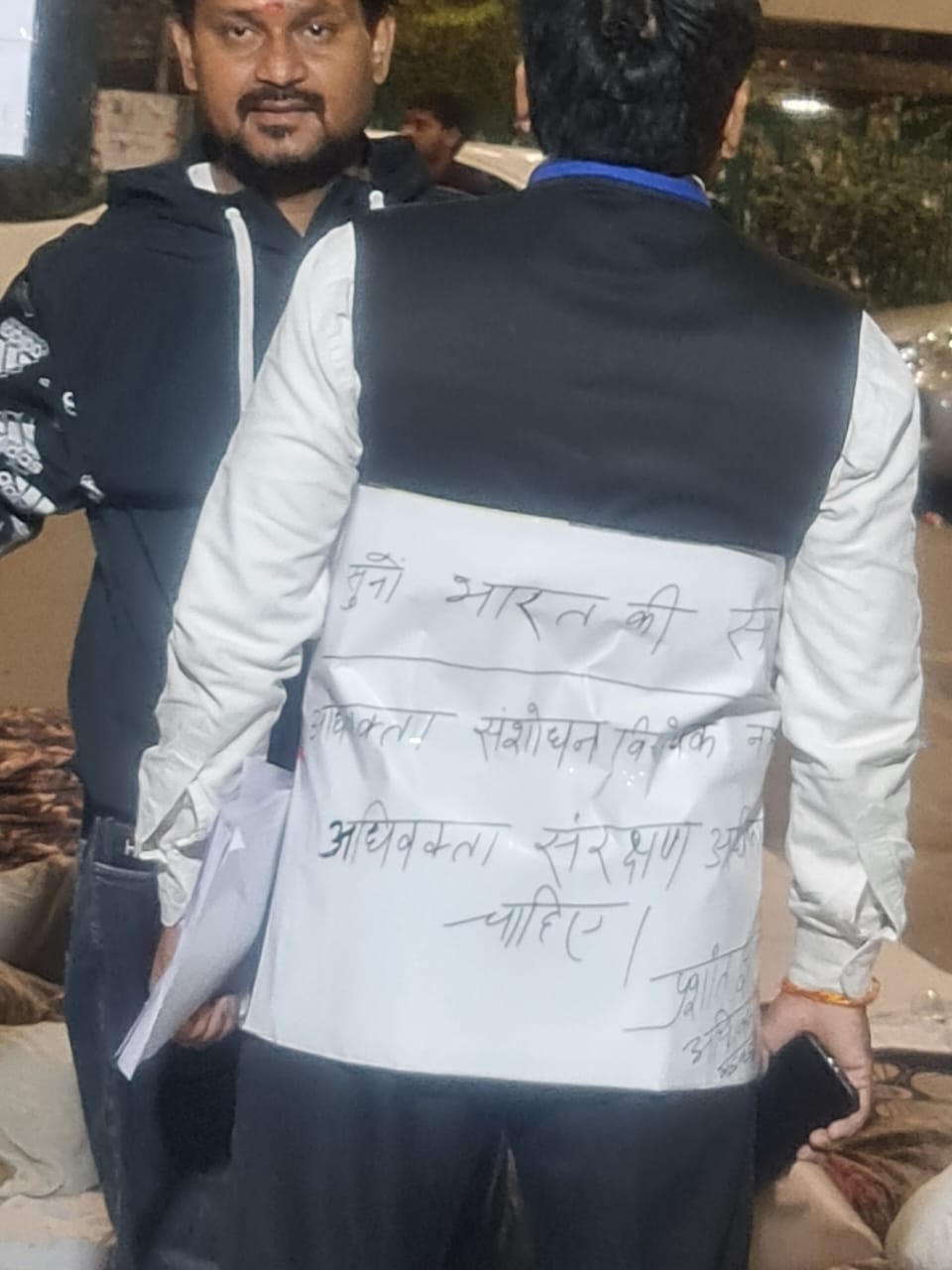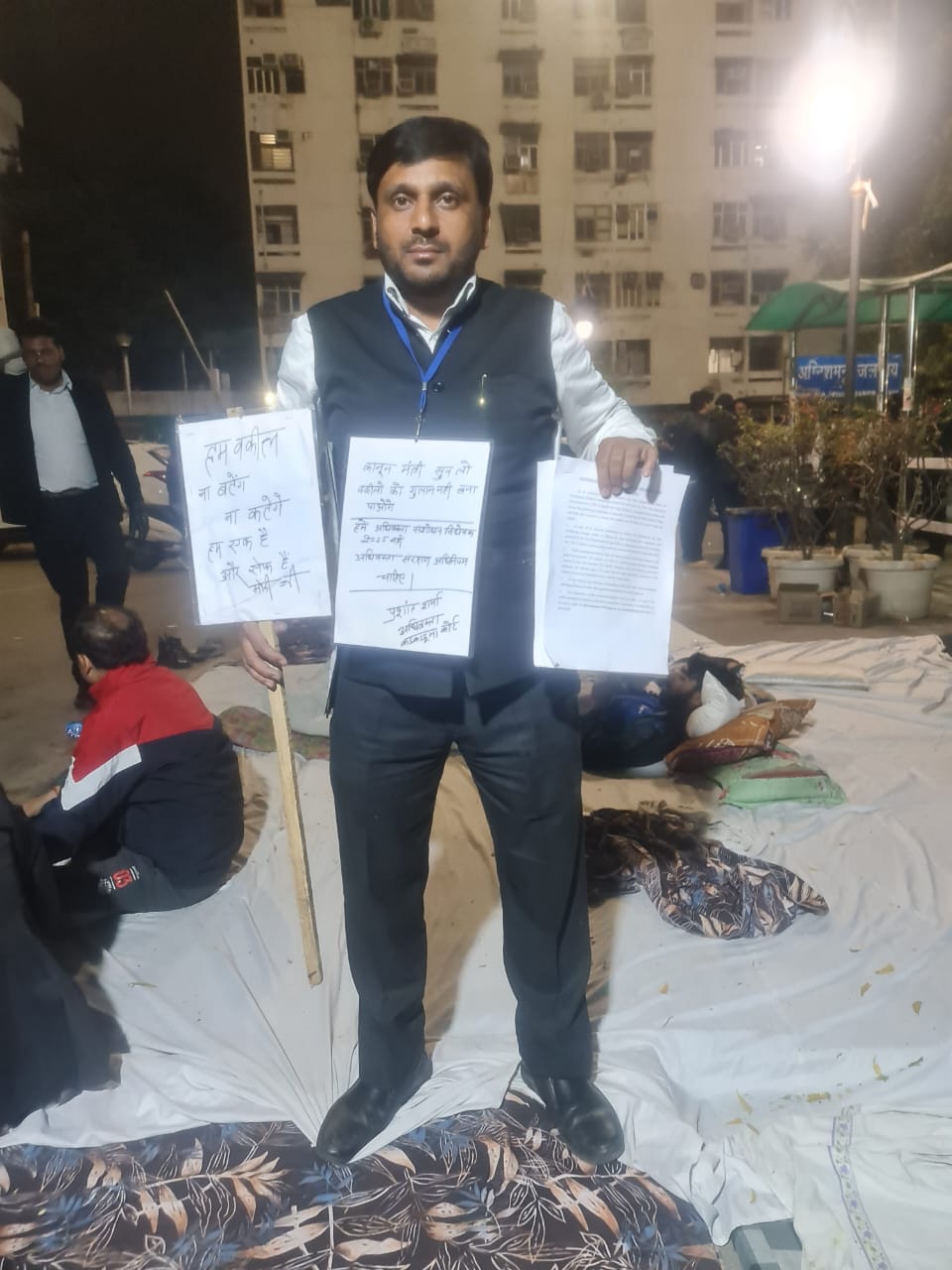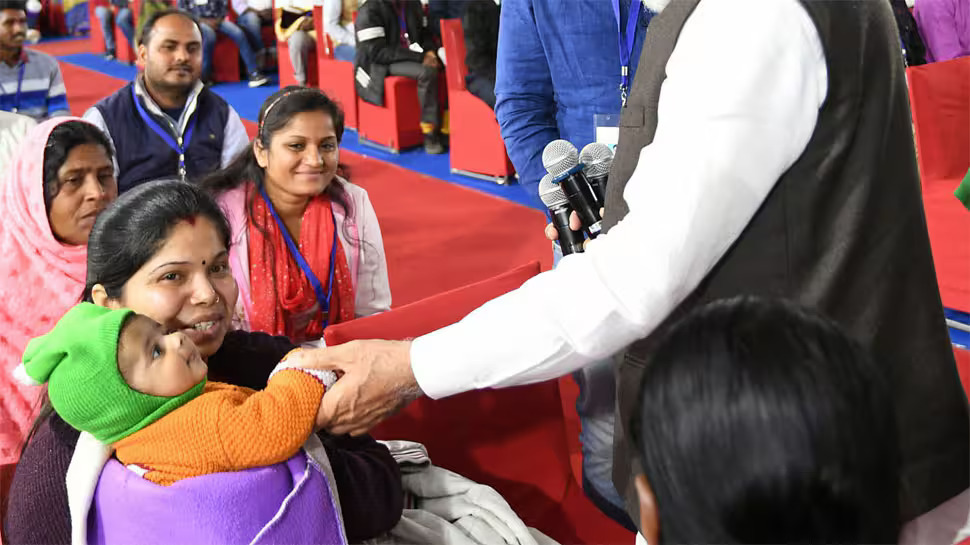Breaking News :
No Google Analytics script available.
Lawyers' Protest and Strike: Opposition to the Proposed Advocate Amendment Bill 2025


- Amit Bhardwaj
- 22 Feb, 2025
Lawyers' sit-in protest at Karkardooma Court against the Advocate Amendment Bill 2025 continues today. The Coordination Committee of all Bar Associations in Delhi has announced the strike till February 28. Why is there opposition to the proposed Advocate Amendment Bill? The proposed "unjust, improper and biased" bill by the Government of India has been unanimously opposed. "This bill is completely against the unity, integrity, and dignity of advocates, and it is also harsh in nature. It will directly affect the autonomy of the Bar Associations and Bar Councils of all states."
The central government has proposed the following amendments to the Advocates Act 1961:
Extension of Legal Professional Definition: The bill proposes to broaden the definition of "legal professional" (Section 2), including not only advocates practicing in courts but also corporate lawyers, in-house counsels, and those engaged in legal work in private and public organizations, statutory bodies, and foreign law firms.
Mandatory Bar Association Registration: New Section 33A mandates that all advocates practicing before courts, tribunals, or authorities must register with the Bar Association where they primarily practice. In the event of a change in location or field of law, the advocate must notify the previous Bar Association within 30 days. Advocates will be allowed to vote in one Bar Association.
Prohibition on Court Boycott and Strike: A significant inclusion is Section 35A, which prohibits advocates and Bar Associations from calling or participating in strikes or boycotting court proceedings. Any violation will be considered professional misconduct and subject to disciplinary action. However, symbolic or one-day protests on professional or administrative issues are permitted, provided they do not disrupt court work.
Government Surveillance and Regulation:
Government-Nominated Members in BCI: The amendment to Section 4 allows the central government to nominate three members to the Bar Council of India (BCI) in addition to the existing elected members.
Power to Issue Directions: The bill introduces Section 49B, giving the central government the authority to issue directions to BCI in implementing the provisions of the Act and its regulations.
Strict Disciplinary Measures and Liabilities:
Increased Penalty for Unauthorized Practice: Under Section 45, those practicing law without proper authorization may face imprisonment of up to one year (previously six months) and/or a fine of up to 2 lakhs.
Liability for Advocate Misconduct (Section 45B): If a person suffers due to advocate misconduct, they can file a complaint under the regulations prescribed by BCI to determine liability.
Removal from State Roll (Section 24B): Advocates convicted of crimes with imprisonment of three years or more will be removed from the State Bar Council roll. Re-enrollment can be considered two years after release, subject to BCI's approval.
Verification and Professional Inspection:
Mandatory Certification and Place of Practice Verification: The bill proposes periodic verification of advocates' credentials, including degrees, addresses, and workplaces.
Foreign Law Firms and Practitioners: Entry of foreign law firms and lawyers in India will be regulated through rules framed by the central government.
Legal Education and Professional Training: BCI will oversee the recognition and regulation of law firms and introduce mandatory pre and post-enrollment training for law graduates.
Bar Examination (Section 2): The bill reinforces the requirement to pass the All India Bar Examination or other prescribed tests before being granted full practice rights.
Verification of Advocates' Credentials (New Sections 19A and 7(DA)): Advocates must undergo periodic verification of their degrees, credentials, and places of practice every five years. Fake or fraudulent degrees will result in disqualification.
Representation of Women in Bar Council of India: To promote diversity, the bill mandates the inclusion of at least two women members in the BCI, chosen from distinguished women advocates. This is a significant step towards greater gender representation in legal institutions.
Every respected individual, regardless of their Bar Association membership, should write to the central government expressing their opposition and initiate discussions on every forum to criticize the proposed amendment and continue all other possible means of protest.
Respectfully, Prashant Sharma Advocate, Karkardooma Court, Delhi
Leave a Reply
Your email address will not be published. Required fields are marked *









